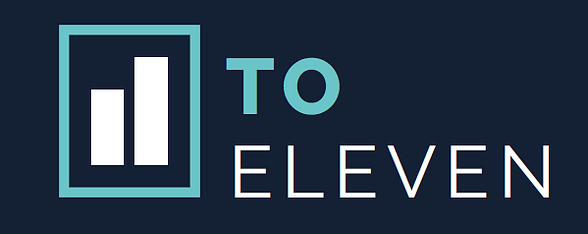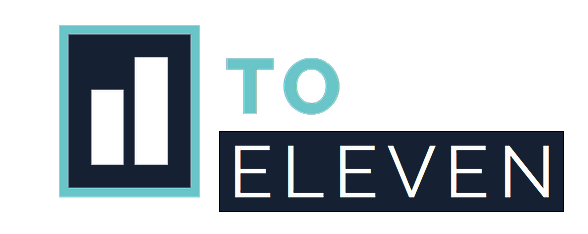College Gives Students the Opportunity to Learn and Explore. So Let them Seize it!
There’s a lot to be said for having goals. For making plans and following through. For creating teaching and learning objectives and using them to guide our curricula and course design. For stating an ambition, or having a vision, and steadfastly working towards it.
If we know where we’re headed, or where we want to go, we are more likely to be able to chart a course to get there.
But having clearly stated goals and plans can have a downside. Especially when it comes to college and career planning. And that’s because oftentimes our goals are formed without enough information, or are based on wrong information, and are viewed as rigid and fixed, unchangeable. Which can make changing your mind and your goals, in the face of new information, all the more difficult.
In their book on how to navigate and thrive in college (The Secret Syllabus) Jay Phelan and Terry Burnham write:
“Would you let a ten-year-old make the most important decision of your life? Probably not. Yet many students do just that. Worse still, many take pride in this fact.
Moreover, usually they have been encouraged to do so-even lauded—by their parents, teachers, friends, and guidance counselors.
”
Choosing which college to attend, whether to attend at all, or which major to study are all big decisions that will have a huge impact on your life. And it can be crippling for many students who have no idea what they want to pursue, and feel a huge pressure to make what can only be seen as a pretty uniformed decision. This stress can be further intensified if they think that everyone else has it figured out and that if they have no idea what they want to study, there must be something wrong with them!
But maybe not having any idea is the better strategy.
During their college years students will have experiences, learn, discover things about themselves, about life, about how they want to spend their time in the near and not so near future. They will be exposed to new areas of study they had never even heard of, let alone imagined they would be interested in, or want to pursue.
It’s true that most people have jobs that the typical child doesn’t see, hear, or read about. Are these people working in jobs that kids don’t typically choose, failures? Because they didn’t necessarily go into college thinking they were going to be an IT manager, actuary, or prosthetist?
It’s also true that the job landscape is changing at a breakneck pace. Many of the jobs that today’s college students will have in the future don’t exist today. Which makes advising young people of “the best jobs” to go after even more of a futile effort!
In his book “Be Useful”, Arnold Schwarzenegger writes about visions and goals in a way that resonates with me and the way I have lived my life. One strategy is to begin with a small goal and build out from it until a clear picture emerges. Another strategy is to begin with a broad vision and then, just as a lens begins to focus as you twist it, you can zoom in until the picture becomes clear. The latter was Arnold’s way. His big picture goal was to move to America, but that was it. No specifics. He didn’t know what he would do—it was a broad vision. But from this vision, eventually a clearer plan emerged.
When I was in high school, I had no idea what I wanted to study in college, or what kind of job I wanted. But I did, like Arnold, have a broad vision. I knew that I loved to learn and wanted to keep doing so. And at the time, for me that was enough of an internal goal to motivate me to succeed. Even though the whole picture had not come into focus just yet.
So what’s the rush to choose a major and plan out the rest of your life starting on Day 1 of your college career?
In an article published this past weekend (in the Atlantic), author Ezekiel J. Emanuel proposes that the worst advice parents can give their first-year students as they drop them off at college is to tell them what they should study and why it is a good choice because it is most likely to lead to success.
You can hear it, right?
Study pre-law? Yes, guaranteed paycheck, respect, and success!
Study literature? Hmmm, maybe not. What can you do besides being a teacher?
Study pre-med? Excellent choice! Grandma and Grandpa always knew you would follow in their footsteps!
Study philosophy? (see literature above)
College is more than just a training camp for an already-chosen career path. It is (hopefully) a place that fosters curiosity, resilience, and discovery. When our middle son, Jack, asked me what he should expect from college, I encouraged him to see it as an experience, rather than a means to an end, or a straight path to the terminal goal of graduation.
I urged him to think about the things he can learn along the way: Teamwork, resilience, figuring out answers to tough questions, enjoying a class that he didn’t think he would at first, becoming a better consumer of scientific information, persevering when things get tough, taking courses “just for the hell of it” or “just for fun”, getting feedback on his writing, analyzing, and thinking—and improving those things.
All are skills that have the potential to transcend the fickle nature of the career landscape.
As Emanuel says in his article:
“The college years are the best time to take intellectual and experiential risks. It is okay—even good—if some of the choices students make don’t work out.”
So what kind of goals should students be making?
The rock band Rush sang in a song:
“If you choose not to decide, you still have made a choice…”
Similarly it doesn’t make you a directionless failure to have a big picture vision (like Arnold’s), or have your goals focus on exploring your options, learning about jobs you haven’t considered, or reflecting on whether or not you do still want to be….[an astronaut/doctor/race car driver/president].
Those are goals too.
Sure they don’t outline concrete end points, but they are ways for you gather information to make more informed decisions. They can help you more clearly identify your values and what is important to you, and then think about what kinds of specific goals align with them.
It might take longer than you want, or longer than your parents want(!), and that’s OK.
As Mary Schmich wrote in her hypothetical commencement speech (used as the basis for Baz Luhrmann’s “Sunscreen Song”):
“Don’t feel guilty if you don’t know what you want to do with your life.
The most interesting people I know didn’t know at 22 what they wanted to do with their lives.
Some of the most interesting 40-year olds I know still don’t.”


